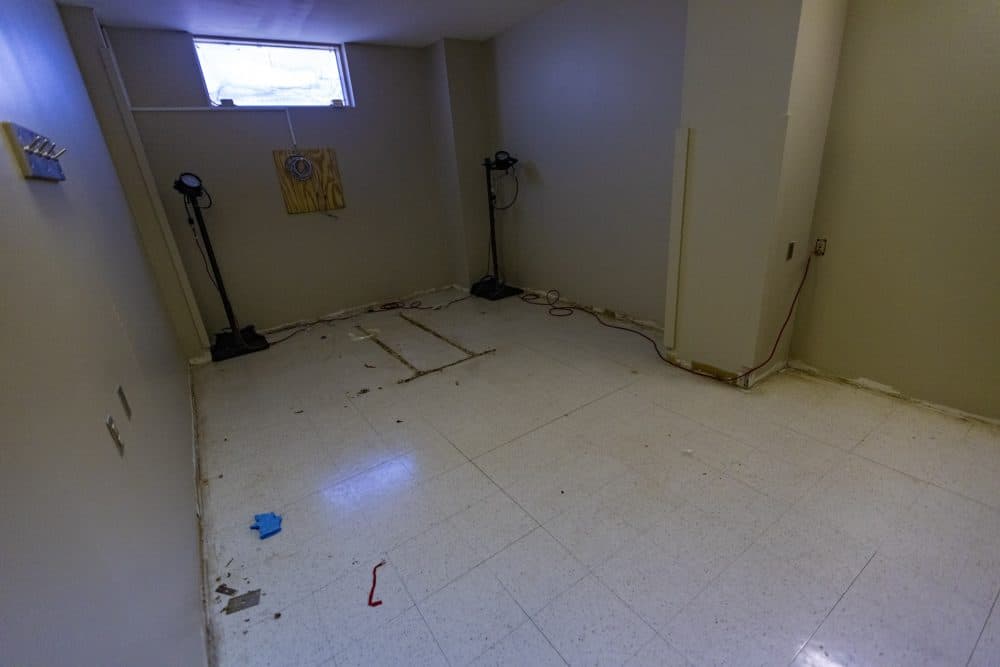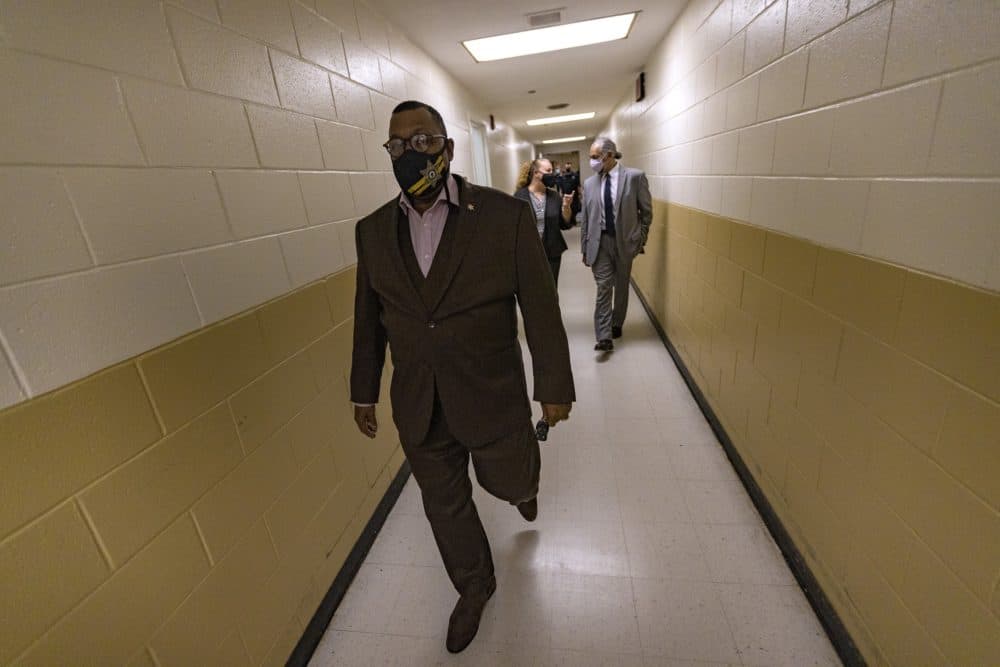Advertisement
New court could be operating in Suffolk County jail as early as next week
Resume
The controversial plan to set up a new court inside the Suffolk County jail appears to be on a fast track, with the Massachusetts Trial Court saying judges could start hearing cases there as early as next week.
But the Committee for Public Counsel Services (CPCS), the state public defender agency, said it opposes the plan. It would likely represent many of the people expected to be brought to the court from a large tent encampment near the jail.
In a statement Tuesday, the Trial Court said that although details were still being worked out, a so-called "stabilization court session" should be processing people at the jail soon.
"The Trial Court is working with the Probation Service and the clerk’s office along with the District Attorney’s Office, the Committee for Public Counsel Services and the Suffolk County Sheriff’s department on the implementation of a stabilization session as early as next week," the Trial Court said in its statement. "Cases for this session would be heard virtually. We are still working through logistics and issues related to the session."
The plan for a new court at the jail was first bandied about a month ago by Suffolk County Sheriff Steve Tompkins as a potential solution to funnel some of those living in tents near the intersection of Massachusetts Avenue and Melnea Cass Boulevard to treatment. In the weeks since, Tompkins has been renovating a room at the jail for the court session and is preparing to use two floors of a jail building to house people in a new addiction treatment program.

While giving a tour last week of the under construction facility, Tompkins explained that, because the Suffolk County jail is in the same neighborhood as the tent encampments and has space, he can take people struggling with homelessness and addiction in and make sure they get services.
"This area is violent right now, and people are living in squalor," Tompkins said. "We are looking to help people who are on my doorstep engaged in a humanitarian crisis. We're not looking to populate this jail with people. We are looking at this as guardianship — helping people who cannot help themselves."
Tompkins said earlier that people with outstanding warrants would be brought to the court with police, legal and medical personnel determining if the person should go to addiction treatment or be incarcerated. His office estimated there are about 135 people living in tents near the jail with such warrants. Tompkins' office said it is "well-prepared to begin administering addiction recovery, mental health and medical services to anyone who is remanded to us by the courts, enrolling them into our treatment programs upon arrival and proper classification."
But CPCS, the state public defender agency, said it was troubling that a court session would be held inside a house of correction. CPCS Chief Counsel Anthony Benedetti said his agency has raised concerns with those planning the court session and treatment facility. Benedetti said public defenders will be working to make sure people are not just removed from the streets and incarcerated.
"This isn't a courthouse," Benedetti said. "There is going to be virtually nobody there from the Trial Court. The judge will be remote; probation will be remote. It'll be corrections officers serving as court officers. We made our opposition to that very vocal that people are being brought to a so-called courthouse where there is nobody, almost nobody there from the court. How is anyone going to look at it as a court?"
Benedetti also said there are few legal mechanisms by which to hold people brought into the stabilization court session, unless they've committed a crime serious enough to warrant jail time. Because Tompkins has said he will not be involuntarily committing people to addiction treatment under the state law known as Section 35, Benedetti said legally the court cannot force people into treatment unless they meet the standard outlined in the law that deems a person's addiction is dangerous. As defense attorneys, Benedetti said the role of CPCS is to make sure people's rights are protected, which might mean that if someone refuses placement or treatment, they can leave.
"Our position has always been these are public health emergencies, and that's how they should be handled — not involuntary detention, not forced treatment," Benedetti said. "It's not our role to talk someone into treatment or a bed or anything else that's being offered.
"Our role is to say, 'Here is the criminal case that they have, and here is what they are offering you,' " he continued. "If they don't want it, then it's our role to say to the judge you should not be holding this person."
"Our position has always been these are public health emergencies, and that's how they should be handled — not involuntary detention, not forced treatment."
Anthony Benedetti
With a backlog of cases from the pandemic, Benedetti also questioned whether there were adequate resources to hold a separate court session. Nevertheless he says CPCS is preparing to have attorneys ready to represent people at the court as early as Monday.
"We have tried to make the argument that these people should be brought to existing courthouses, because no one has the resources to divert to this makeshift court," Benedetti said.
"We have a duty to stand next to our clients wherever they are," he added. "And if that's in this courthouse that's being held in a jail, we will be there."
The state currently faces a lawsuit over sending men committed under Section 35 to correctional settings. Women are no longer permitted to be sent to jails and prisons for addiction treatment after the state lost a similar suit.
Tompkins' proposal for the new program came as the tent encampment grew in the nearby area often called "Mass. and Cass" by city officials and others. Near the stretches where tents are set up are several agencies offering services to those who are homeless or have mental health or substance use disorders.
Although several advocates and addiction medicine specialists said Tompkins' plan criminalizes addiction and mental health, Suffolk County District Attorney Rachael Rollins told WBUR's Radio Boston this week it was the only viable option that's been put forward.
Rollins said a "central coordinating structure" is needed to get people off the streets, stressing that those living in the tents exist in squalor and are in danger. While Rollins said a jail is not an ideal location for a court and treatment center, she said those planning the court session were working to make sure it operates lawfully.
"This isn't a fake court the sheriff is creating," Rollins said. "There are real judges. There will be real criminal defense attorneys, and there will be real prosecutors. This is an incredibly medically compromised population, and I just want something in that location so that people can get the help they need."
Acting Boston Mayor Kim Janey issued an executive order last week declaring the encampment area a public health emergency. She said she was working on a plan to get rid of the tents, and that people would be offered alternative shelter before their tents were removed. If people refused placement, Janey said they could be charged with disorderly conduct.
A few tents were moved since Janey issued the order, and some of the people living in them were provided storage bins to keep their belongings at a homeless shelter. Janey's office said it is still developing the procedures its using to move people from the encampment. Janey has said that using a detention center for people "raises questions and concerns."
This segment aired on October 27, 2021.
